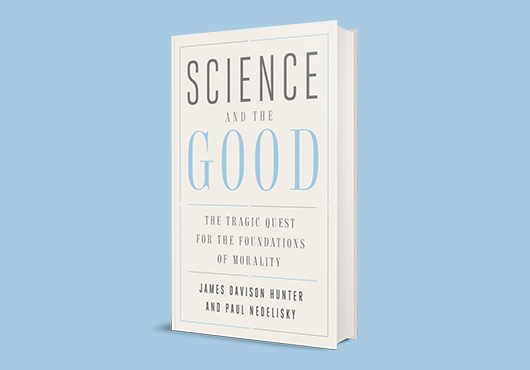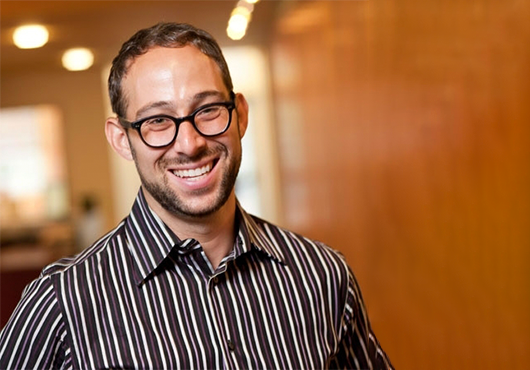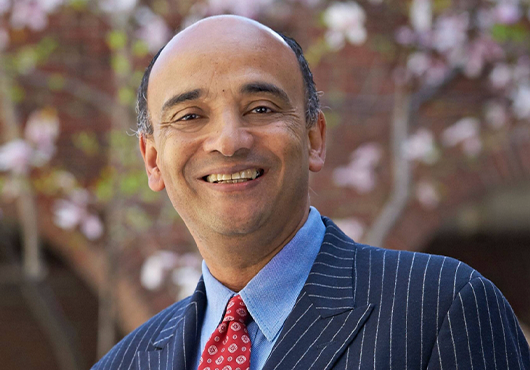The term practical wisdom may sound puzzling to a contemporary audience. In this regard, we often tend to think of “wisdom” as the opposite of “practical” or “useful.” On this account, wisdom is fundamentally a form of knowledge regarding abstract theoretical truths such as goodness, justice, beauty, and so on. Plato, one of the greatest moral philosophers of all time, shared this view that wisdom was theoretical and abstract, and the gift of only an elite few, the famed philosopher kings of his Republic. Aristotle, his own student, however, broke with his beloved teacher on this crucial point. Aristotle thought that our fundamental social practices constantly demanded choices like when to be a loyal to a friend, or how to be fair, or how to confront risk and danger, or when and how to be generous or angry and that making the right choices demanded a particular type of action-guiding wisdom.
As Elizabeth Anscombe and Alasdair MacIntyre have reminded us, for Aristotle, ethics is not mainly about discovering and establishing the right set of moral rules or laws and rigidly following them. It is primarily about performing a particular social practice well such as being a good friend, parent, doctor, teacher, or citizen and that meant figuring out the right way to do the right thing in a concrete set of circumstances, with a particular person, at a particular time, and so on. [1] His subject was what we needed to learn in order to succeed at our practices and to flourish as human beings. We need to learn certain essential character traits such as loyalty, self-control, courage, generosity, kindness, friendliness, and perseverance. Aristotle called these traits “excellences” (arête) often translated as “virtues.” But the master or architectonic excellence, the virtue at the heart of his ethics, was he called phronesis often translated as “practical wisdom.” None of these other traits could be possessed or exercised without it.
And yet the questions why “wisdom?” And why “practical?” naturally arises. Why not just a good set of rules to follow? In these situations, most experienced practitioners recognize that rules only take them so far. Rules can’t tell practitioners how to do the constant interpretation and balancing that is part of their everyday work. Consider a doctor who has been well trained in the relevant subject expertise and the rules of how to practice medicine but is constantly forced to make more complicated and emotionally charged decisions. How should such a doctor balance respect for a patient’s autonomy with their fundamental commitment to beneficence or non-maleficence or justice? How should a doctor balance empathy or compassion with the detachment needed to make sound clinical judgments? How should a doctor balance the desire to spend enough time with each patient to be thorough and understanding with the need to see enough patients in a day to keep their office or medical practice financially solvent? How should a doctor balance their duty to tell patients the truth, no matter difficult, with the desire to be kind or encouraging?
In this regard, doctors are certainly not alone. Practitioners such as teachers and lawyers are not puzzling over a choice between the “right” thing and the “wrong” thing. The common quandaries they face are difficult choices among goods that clash, or between better and best, or sometimes between tragic and worse. A good doctor needs to be honest with his or her patients, and kind, and to give them the hope they need to endure painful and difficult treatments. But in diagnosing a patient, these aims can be at odds, and the doctor must decide whether to be honest or kind, or more likely how to balance honesty and kindness in way that is appropriate for this particular patient at this particular time.
These sorts of quandaries don’t have easily applicable one-size-fits-all answers. Good rules might be useful as guides as we try to manage these multiple aims, but they will never be subtle, nuanced, or comprehensive enough to apply in every situation that we might arise. Aristotle recognized that balancing acts like these require wisdom, and that a purely theoretical form of wisdom would not be sufficient or useful. Wisdom has to be practical, because the issues we face are deeply embedded in our everyday work and lives. They are not hypotheticals raised only in college ethics courses. They are quandaries that any practitioner must resolve in order to do his or her work well. Practical wisdom is not musing about how someone else in a hypothetical situation ought to act. It is about “what am I to do?” right here and now, with this person. A practically wise person doesn’t merely speculate or theorize about what is proper, crucially, he or she actually does it.
On this account, then, virtue ethicists argue that practical wisdom is the intellectual virtue that enables a person to make good decisions about what virtue requires in a particular set of circumstances. In this regard, anyone with a moral upbringing is committed to virtues such as justice, fairness, generosity, honesty, and compassion and can understand what they require in many ordinary everyday cases. Nevertheless, there may situations where individual virtues appear to be in conflict. In addition, there may be unresolvable forms of uncertainty or passionate and legitimate disagreement amongst those we regard as being morally and practically wise. Finally, there is always the possibility that we may get things wrong, especially in tough cases, a phenomenon which is very familiar to anyone who works in the field of bioethics.
In addition, all of these philosophical positions about the nature of wisdom make important empirical assumptions about human character and psychological capacities. As Kwame Anthony Appiah has argued, whether and when reliable intuition is possible for ordinary people, and whether and what type of reflection actually contributes to good decisions is something that has to be discovered at least in part through empirical study and observation. [2] In fact, there is psychological and neuroscience research indicating that conscious reflection may lead to bad decisions in certain situations. [3], [4] Thus, although we need philosophical argument to develop a rationally defensible ideal of practical wisdom, this ideal must be one that is compatible with the best contemporary empirical accounts of human capacities, limitations, and weaknesses.
These disagreements about the nature of practical wisdom are closely connected to disagreements regarding whether and how wisdom can be developed. If practical wisdom indeed includes an intuitive ability to see what to do, immediately and without much effort or conscious reasoning, then how does one develop this ability? If wisdom is, on the other hand, less intuitive and more deliberative, then does this mean developing practical wisdom requires something like expertise in moral philosophy? If that is the case, does it mean relevant experience is less necessary for developing wisdom? What kind of deliberation produces good decisions? If practical wisdom is such a difficult achievement, is it even possible for real people to acquire it? If it is possible, how might they do so in a reliable way? In this regard, then, I would argue that developing a philosophically rigorous, empirically informed, and practically useful account of what practical wisdom is and how we can develop it is one of the most important tasks today for contemporary moral philosophy and bioethics.
As editor of Issue #5 of the Harvard Bioethics Journal, I am delighted and honored to share a wide-ranging series of articles and interviews on some of the most important discussions in the field today. In the feature article, “Medical Research on Animals and the Question of Moral Standing,” Christine Korsgaard, developing the argument laid out in her important new book Fellow Creatures, makes a powerful and provocative case for the total abolition of medical and scientific experimentation and research using animals. In my interview with Kwame Anthony Appiah, we discuss a wide range of topics including the promise and the limits of evolutionary ethics, the flaws in quandary ethics, and important questions regarding moral wisdom and expertise. In their article, “Moral Expertise in Clinical Ethics: Problems and Prospects,” Jamie Watson and Laura Guidry-Grimes offer a strong and provocative defense of moral expertise more generally and clinical ethicists in particular as moral experts. In their article, “The Rule of Double Effect: A Tool for Moral Deliberation in Practice and Policy,” Daniel Sulmasy and Mary-Kate Brueck, offer a vigorous defense of the rule of double effect as a useful and valuable principle in evaluating a wide range of difficult moral and public policy dilemmas. In his article, “Towards a New Bioengineering Ethics,” Insoo Hyun offers a new hybrid approach “bioengineering ethics” to address medical and scientific research that unites the biological capacity of human cells with engineered platforms. In my interview with Glenn Cohen, we discuss the ethical issues raised by medical tourism, mitochondrial replacement theory, the second “reproductive revolution,” procreative beneficence, and the use of big data and artificial intelligence in the health care setting. In his interview with James Davison Hunter and Paul Nedelisky, Stowe Locke Teti discusses their important new book Science and the Good: The Tragic Search for the Foundations of Morality and the permanent limitations involved in developing a “science of morality.” In his review of the same work, George Scialabba offers a powerful and insightful reflection on Davison-Hunter and Nedelisky’s work as well as a number of other philosophical questions raised by their critique and the search for the foundations of morality. Finally, Daniel Callahan, in one of his final publications in a very long and prolific career, “Bioethics and the Future: Can Progress be Tamed?” Callahan looks back to the founding of the discipline in the 1960’s and offers a series of reflections on the development of the field as well as the most important questions that might arise looking forward in the 21st century.
Timothy J Furlan, PhD, MBE
Visiting Professor of Bioethics and Philosophy
Boston College
Boston, MA
Timothy_Furlan@hms.harvard.edu
furlant@bc.edu
Endnotes
[1] MacIntyre, Alasdair. After Virtue: A Study in Moral Theory (South Bend: University of Notre Dame Press, 1981): 181-223.
[2] Appiah, Kwame Anthony. Experiments in Ethics (Cambridge, MA: Harvard University Press, 2008: 73-121.
[3] Bortolotti, Lisa. "Does Reflection Lead to Wise Choices?" Philosophical Explorations 14, no. 3 (2001): 297-313. https://doi.org/10.1080/13869795.2011.594962.
[4] Wilson, Timothy D. Strangers to Ourselves (Cambridge, MA: Harvard University Press, 2002).


